Background
Philip M. Weinstein was born on July 8, 1940, in Memphis, Tennessee, United States. He is the son of Jacob and Rose Weinstein.

Princetown University, Princeton, NJ 08544, United States
Princetown University where Philip Weinstein received his Bachelor of Arts degree.
Harvard University, Cambridge, MA, United States
Harvard University where Philip Weinstein received his Master of Arts and Doctor of Philosophy degrees.

(The Semantics of Desire: Changing Models of Identity from...)
The Semantics of Desire: Changing Models of Identity from Dickens to Joyce examines the dialectic of desire and value, as it affects the protagonist's identity, in fiction from Dickens and George Eliot through Hardy and Conrad to Lawrence and Joyce. Philip Weinstein describes the growing sexualization of the imagined body - the transformation of the protagonistic self from a figure defined by semantics, signification, and cultural value to one characterized by desire, force, and natural impulse.
https://www.amazon.com/Semantics-Desire-Changing-Identity-Princeton/dp/0691640432/ref=sr_1_1?dchild=1&keywords=The+Semantics+of+Desire%3A+Changing+Models+of+Identity+from+Dickens+to+Joyce&qid=1592984764&sr=8-1
1984
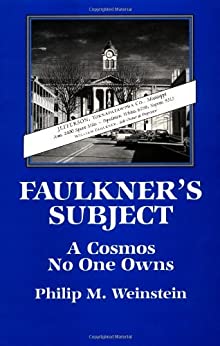
(Faulker's Subject: A Cosmos No One Owns offers a reading ...)
Faulker's Subject: A Cosmos No One Owns offers a reading of William Faulkner by viewing his masterpieces through the lens of current critical theory. The book addresses both the power of his work and the current theoretical issues that call that power into question. Drawing on poststructuralist, ideological and gender theory, Weinstein examines the harrowing process of becoming oneself at the heart of Faulkner's work and suggests that the cosmos Faulkner called his own - the textual world he produced - emerges as a cosmos no one owns, a verbal territory generated and biased by the larger culture's discourses of gender and race.
https://www.amazon.com/gp/product/B001G60ICW/ref=dbs_a_def_rwt_bibl_vppi_i2
1992
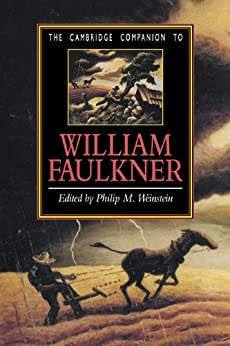
(This collection of essays explores Faulkner's widespread ...)
This collection of essays explores Faulkner's widespread cultural import. Drawing on a wide range of cultural theory and written in accessible English, ten major Faulkner scholars examine the enduring whole of Faulkner's oeuvre. Together these essays map Faulkner's contemporary meaning by exploring his relation to modernism and postmodernism, to twentieth-century mass culture, to European and Latin American fiction, to issues of gender difference, and, above all, to the conflicted scene of United States race relations. Neither assuming in advance his literary greatness nor insisting that his canonical status be revoked, they instead pose the question: what is at stake today in reading Faulkner?
https://www.amazon.com/Cambridge-Companion-Faulkner-Companions-Literature-ebook/dp/B00AA8JSOG/ref=sr_1_9?dchild=1&qid=1592985662&refinements=p_27%3APhilip+Weinstein&s=books&sr=1-9&text=Philip+Weinstein
1995
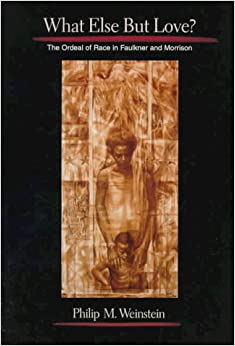
(Weinstein investigates the stories blacks and whites, men...)
Weinstein investigates the stories blacks and whites, men and women, tell about each other through the work of two quintessential American novelists: William Faulkner and Toni Morrison. Exploring deep-rooted understandings of race and gender and describing how differently their "Americanness" resonates in both writers' works, What Else But Love? considers the legacy of slavery in a variety of ways, from the meaning of mammies and mothers to the question of black manhood.
https://www.amazon.com/gp/product/0231102755/ref=dbs_a_def_rwt_bibl_vppi_i4
1996
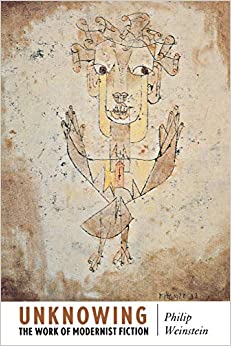
(Philip Weinstein explores the modernist commitment to "un...)
Philip Weinstein explores the modernist commitment to "unknowing" by addressing the work of three supreme experimental writers: Franz Kafka, Marcel Proust, and William Faulkner. In their novels, the narrative props that support the drama of coming to know are refused. When space turns uncanny rather than lawful, when time ceases to be linear and progressive, objects and others become unfamiliar. So does the subject seeking to know them. Weinstein argues that modernist texts work, by way of surprise and arrest, to subvert the familiarity and narrative progression intrinsic to realist fiction. Weinstein draws on major Enlightenment thinkers to identify constituent components of the narrative of "coming to know" - the progressive narrative underwriting two centuries of Western realist fiction.
https://www.amazon.com/Unknowing-Modernist-Fiction-Philip-Weinstein/dp/0801489733/ref=sr_1_4?dchild=1&qid=1592985096&refinements=p_27%3APhilip+Weinstein&s=books&sr=1-4&text=Philip+Weinstein
2005
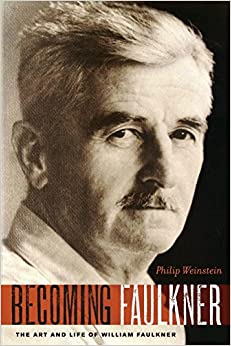
(William Faulkner was the greatest American novelist of th...)
William Faulkner was the greatest American novelist of the twentieth century, yet he lived a life marked by a pervasive sense of failure. Throughout his career, he remained haunted by his inability to master a series of personal and professional challenges: his less-than-heroic military career, the loss of his brother in an airplane crash, a disappointing stint as a Hollywood screenwriter, and a destructive bout with alcoholism. In this imaginative biography, Philip Weinstein targets Faulkner's embattled sense of self as central to both his life and his work. Weinstein shows how Faulkner's troubled interactions with time, place, and history - with antebellum practices and racial division - take on their fullest meanings in his fiction. Exploring the resonance of his own unpreparedness, Faulkner invented a singular language that captured human consciousness under stress as never before.
https://www.amazon.com/Becoming-Faulkner-Art-Life-William/dp/0199898359/ref=sr_1_4?dchild=1&keywords=Philip+Weinstein&qid=1592985330&s=books&sr=1-4
2009
Philip M. Weinstein was born on July 8, 1940, in Memphis, Tennessee, United States. He is the son of Jacob and Rose Weinstein.
Philip Weinstein received a Bachelor of Arts degree from Princeton University in 1962. Then he obtained a Master of Arts degree in 1966 and a Doctor of Philosophy degree in 1968, both from Harvard University.
After receiving his doctor's degree, Philip Weinstein began his teaching career. In 1968 he joined Harvard University as an assistant professor of English, the position he held till 1971. Then he went to Swarthmore College. He began working there as an associate professor and then became a professor of English and head of the department. During his years at Swarthmore College, he taught seminars in Modern Comparative Literature, as well as a range of courses in American and British fiction.
In addition to teaching, Weinstein is also engaged in writing. His publications include Henry James and the Requirements of the Imagination (1971), The Semantics of Desire: Changing Models of Identity from Dickens to Joyce (1984), Faulkner's Subject: A Cosmos No One Owns (1992), What Else But Love? The Ordeal of Race in Faulkner and Morrison (1996), Unknowing: The Work of Modernist Fiction (2005), and Becoming Faulkner: The Art and Life of William Faulkner (2009). He was also the editor of The Cambridge Companion to William Faulkner (1995).
Philip Weinstein is particularly known as an outstanding educator as well as a prolific author. He was listed as a noteworthy English educator and literary critic by Marquis Who's Who. He is the recipient of several NEH Fellowships and an ACLS Fellowship. His book Becoming Faulkner: The Art and Life of William Faulkner was the recipient of the Hugh Holman Award for the best book written on Southern Literature.
(The Semantics of Desire: Changing Models of Identity from...)
1984(Weinstein investigates the stories blacks and whites, men...)
1996(Philip Weinstein explores the modernist commitment to "un...)
2005(Faulker's Subject: A Cosmos No One Owns offers a reading ...)
1992(William Faulkner was the greatest American novelist of th...)
2009(This collection of essays explores Faulkner's widespread ...)
1995Philip Weinstein's aim in writing literary criticism is to convey to others the interplay of formal achievement and ideological encounter in modern fiction.
The writer he cares for most is William Faulkner.
Quotations:
"Literature is my field of reality because it's about life."
"Great novels are inexhaustible windows on their world, drawing on and departing from inherited cultural norms, showing what can and cannot be achieved, what can only be desired, what must be suffered."
Philip Weinstein married Elizabeth Pendleton on June 7, 1963. The marriage produced two children, Elizabeth and Katherine.
